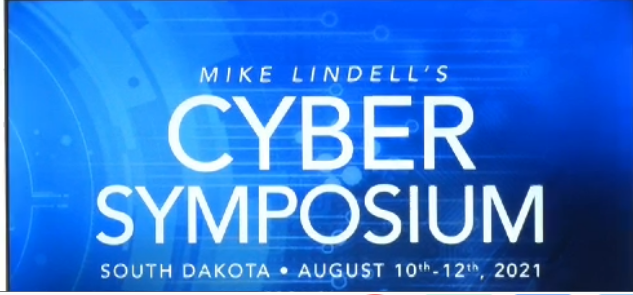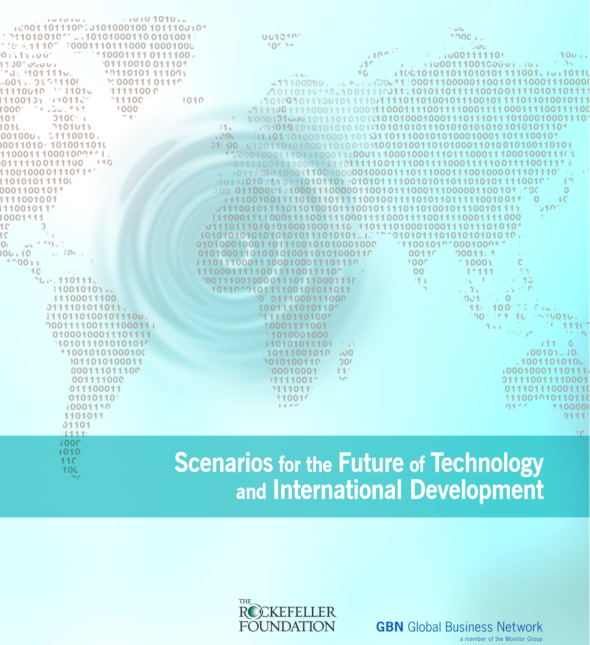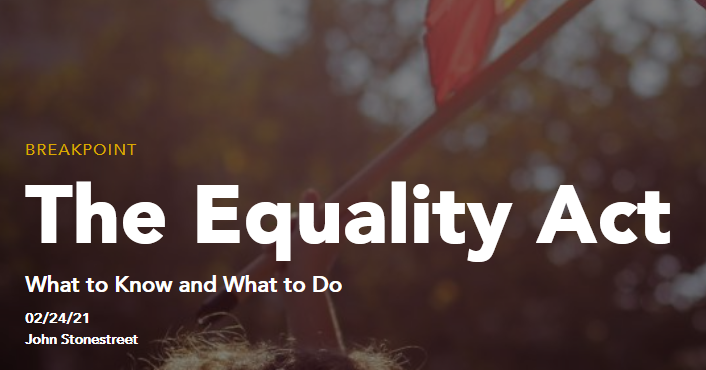What I am about to write, I have written about before, in various different guises. However, I think it is worth going back over some old ground again. Hopefully in a more effective manner.
In this blog what I want to do is to look at how we think about a few things, primarily in medicine, and medical science. To try and highlight how some repeated flaws in thought have influenced the reaction to COVID19.
I hope that by doing this, it may help to prevent some us travelling down the terribly well-worn ‘paths of pointlessness’ again. Or, at least, to get people to stop and question how they are thinking, before throwing themselves into the fray.
To begin.
What I saw happening with COVID19 is a pattern that repeats in medicine over and over again:
- We have a serious illness – panic
- Something must be done – grab the pitchforks, run about screaming
- An influential person, or organisation, grabs the initiative – ‘‘experts’ move in.’
- I/We know what to do, you must follow me/us – simple idea + soothing paternalism
- Frightened people latch onto their ideas – two legs good, four legs bad
- A path is chosen – along the side of a cliff
- Momentum builds – the unstoppable charge of the light brigade
- Those who object to the path taken are crushed – 1984
Fast forward a few decades… ‘Oh, it seems that the thing we always do as standard medical practice… Turns out it does more harm than good.’ See under: removal of toxic colon, the radical mastectomy, strict bed rest following a heart attack, cutting teeth, use of radium water, plombage, mercury for syphilis, pre-frontal lobotomy etc.
Of course, this pattern is not true of every medical intervention, not by any manner of means. Sometimes the influential person, or organisation, promotes the best course of action. This has been known to happen from time to time… believe it or not. In addition, medical practice does eventually auto-correct – and ends up doing the right thing. Almost always. We no longer remove toxic colons to cure female neurosis.
But what never, ever, seems to happen is OODA. Defined as ‘a practical concept designed to function as the foundation of rational thinking in confusing or chaotic situation’.
OODA stands for. ‘Observe, Orient, Decide Act.’
It was developed by the Air Force Colonel, John Boyd.
What John Boyd taught was simple. If you don’t know what is going on, do not make immediate decisions. First, work out what is happening, then orientate yourself – before you decide what to do. That way you avoid most, if not all, stupid mistakes. For many years, without knowing anything of OODA my own medical strategy has tended towards ‘don’t just do something, stand there.’
Unfortunately, the medical profession has always battled ferociously against doing nothing. It has always greatly favoured the ‘You must do something, anything, I don’t care what it is so long as it sounds like a good idea. Chaaarge!’ Strategy.
This, the ‘do something strategy’, has always proven far more seductive, and almost always wins. It is easier to attract followers to do something, than to than to do nothing. Why not whack a hole in the skull and split the brain apart to cure various mental diseases? Why not… indeed. Ah yes, the good old pre-frontal lobotomy.
A.N. Other doctor: ‘If you do nothing people will surely die. You cannot just stand there doing nothing.’
Me: ‘But what if those things we do end up causing more damage, or killing more people?’
Many years ago, my father said to me. ‘You will always be blamed for failures of omission, rath than commission.’ At the time I was young, I knew everything, and thought he was talking rubbish. In truth I didn’t really understand his point. Now that I know that… I know nothing, I fully understand how profound his comment was. I wish I had listened to him more.
Yes, doing something will always be looked on in a positive light. Effort has been made, decisions have been taken, activity carried out. In medicine this is reflected in a comment that I have had directed at me, from time to time. ‘At least you tried, doctor.’ Well, seeing as they are now dead, my efforts achieved very little. But thanks anyway.
In addition, if you do nothing, you can be accused of laziness, of being uncaring. You just stood there and watched them suffer, even die. You cruel swine. I see this overwhelming urge to do something, anything, in the person who cannot swim, jumping into a river to try and save their dog from drowning.
What exactly did they think they were going to achieve? Oh well, at least they tried, you may say. No… they were stupid. They drowned along with their dog. But who can stand on the riverbank watching their dog die?
Well, me, actually.
This also moves into the area of survival guilt. How am I still alive when others have died? Better to die trying than to have done nothing? It all further wraps round into it the almost irresistible urge to be seen to be doing something. I think it is hard-wired into our psyche. We must fight to protect those in our tribe and be seen to be doing it. Chop, chop, busy, busy, work, work, bang, bang 1.
I am, however, reminded of the philosophy behind recruitment to the German army in the good old days – as recounted to me. Men were divided in to four categories:
- Intelligent and lazy
- Intelligent and hardworking
- Stupid and lazy
- Stupid and hardworking
At which point
- Intelligent and lazy men were taken for officer training
- Intelligent and hardworking men were turned into NCOs (non-commissioned officers)
- Stupid and lazy men became privates – squaddies, to use the UK vernacular
- Those who were both stupid, and hardworking, were taken out and shot, before they could do too much damage
Doing things, doing things, doing things. We place great value on it. Too much.
As Kurt Vonnegut Jnr noted in Cat’s Cradle:
“We do, doodley do, doodley do, doodely do,
What we must, muddily must, muddily must, muddily must;
Muddily do, muddily do, muddily do, muddily do,
Until we bust, bodily bust, bodily bust, bodily bust.”
Of course, if there are things to be done, they should be done. But that does not mean we should rush around doing stuff, just because it seems better than doing nothing. Here is what Vinay Prasad has to say in his blog ‘Will science do better post COVID19?’
‘When faced with a pandemic, we re-treated to all the old delusions. Bioplausibilty was sacrosanct— that’s why #maskswork! We can’t run RCTs— these are parachutes. Doing something is always better than doing nothing! More is better than less! Keep boosting, young man!! Newer is better than older. Disease bad; treatments good. Bad people (John Ioannidis) are always wrong (never mind, that a year ago we all thought he was brilliant).’ 2
The additional problem with doing things is that, once you have started doing them, it becomes damned difficult to stop again. After you have decided to blow four hundred billion pounds on lockdown, or thereabouts, then you are pretty much stuck with it. Or else, you are going to look pretty stupid. ‘Sorry, ahem, I seem to have wasted a teensy bit of money. Sorry, my mistake.’
If everyone is ordered to wear a mask, on pain of death, you are stuck with that too. Back pedalling from instant decisions is very, very, difficult. For the scientists and politicians involved you cannot be seen to have been wrong. Reputations must be protected.
At which point, vast amounts of time and effort are expended in trying to batter down anyone who dares to suggest that we rushed into doing things that were completely pointless, even damaging. Science then becomes twisted and bent to justify the errors made. Those in power must retain power. The narrative must be supported:
- COVID19 is really, really deadly
- Lockdowns really, really, work
- Masks really, really, work
If you question these narratives, people will demand an answer to this rhetorical question. Do you want people to die! (That’s always an effective weapon). The correct answer to this question by the way, is usually no – although I am willing to make exceptions.
The other terrible flaw in thinking here, especially in medicine, was also mentioned by Vinay Prasad. It is Bioplausibility. Often closely associated with fast thinking a.k.a. jumping to conclusions, because they just seem right.
Masks, indeed, must surely work. Because? Because they prevent the virus from spreading. In fact, masks represent an almost perfect example of bioplausibility a.k.a. sheer common sense. No-one can argue against using them. If you do, your arguments must be pure sophistry, or simply nonsense. ’You do not understand science.’ That’s a good one, I get that a lot.
‘I think you will find it is not I that fails to understand science.’ I think to myself. But I don’t say it, because it makes you sound like a prat.
Let me remind you of a time when, after a heart attack you had to rest in bed doing nothing for six weeks. The heart has been damaged and must be given a chance to rest. Yes, perfect Bioplausibility, believed by virtually everyone. To question it was to be cast into the outer darkness.
It is now known that the worst thing you can possibly do is to enforce strict bed rest post heart attack. This advice, in place from 1912 to about 1960(ish), killed tens of millions. Maybe hundreds of millions.
As for masks – the sort of masks worn by almost everyone.
‘The use of cloth facemasks in community settings has become an accepted public policy response to decrease disease transmission during the COVID-19 pandemic. Yet evidence of facemask efficacy is based primarily on observational studies that are subject to confounding and on mechanistic studies that rely on surrogate endpoints (such as droplet dispersion) as proxies for disease transmission. The available clinical evidence of facemask efficacy is of low quality and the best available clinical evidence has mostly failed to show efficacy, with fourteen of sixteen identified randomized controlled trials comparing face masks to no mask controls failing to find statistically significant benefit in the intent‐to‐treat populations. Of sixteen quantitative meta‐analyses, eight were equivocal or critical as to whether evidence supports a public recommendation of masks, and the remaining eight supported a public mask intervention on limited evidence primarily on the basis of the precautionary principle. Although weak evidence should not preclude precautionary actions in the face of unprecedented events such as the COVID-19 pandemic, ethical principles require that the strength of the evidence and best estimates of amount of benefit be truthfully communicated to the public.’3
How can masks possibly fail to work?
Well, unfortunately, our brains work one way, and the world often works in quite another way. As does, therefore, science. For centuries people thought that heavier than air flight would only be possible if you flapped things that looked very like wings. Why, because birds and bats were the only flying things people had ever seen flying [apart from lemmings] and they mostly flapped about like mad – using wings.
Except that, if you looked closely, they didn’t – not really. If you thought flapping was the key to flight, you were not really looking. An albatross can stay aloft for hours, gliding above the waves, using the wind and updrafts, and barely moving its wings at all.
Yet, and yet, no-one was able to see this. When I say ‘see’ this I mean – look beyond the obvious, in your face, flappy stuff. Observe properly, deeply, to really understand what you are looking at – in this case aerodynamics. Eventually, of course, some people did. Et voila, the Wright Brothers.
With masks… Yes, it is both true, and self-evident, that a mask stops droplets being catapulted across a room after a cough or sneeze, or suchlike. So, they must stop spread…mustn’t they? I mean, you can even see it working in slow motion videos. A man coughs in London, virus ends up in New York – or something. Ah, the dreaded Bioplausibility… that can also be visualised. Double bubble.
But a mask can also turn droplets into an aerosol by breaking the droplet down into far smaller particles. Particles will float in the air for longer, and thus be inhaled for longer. Possibly, probably4. You didn’t think of that, did you?
A mask can also become damp and keep viral particles viable for longer. Once discarded – as many masks are – they represent receptacles for viruses and can spread disease when picked up. What happens when masks are used and used, and re-used? As they often are. Superspreading here we come. Blowing viral particles out of a wet mask.
As a wise man also said. Using cloth masks to prevent viral spread it like trying to pick up sand with a tennis racket. Virus particle size ‘x’. Holes in mask size 1000x.
A mask can also mean that people stand closer to each other than they otherwise would. A mask may, simply, never had had a chance to work at all. After all, we breathe in and breathe out the same amount of air whilst wearing a mask than not.
If there is virus in floating in the air, we are still going to breathe it in, and out. Masks do not stop us breathing, and the air has to come from somewhere. Unless masks act as a type of black hole, trapping, then transporting viral particles from here into another universe… I’m not putting much money on that hypothesis.
Some months ago, I wrote about the last people to be infected with smallpox. In one hospital, in Germany, a patient with smallpox was being treated on the ground floor. The patient in the room above, and then the room above that, become infected. Which means that viral particles must have got out the window, drifted upwards and infected those above.
Which just gives you some idea of how few viral particles were needed to spread a disease that was, up to that time, not even believed to spread through the air. No droplets required.
Early on, with COVID19 it was noted that ferrets could be infected with the virus. So, researchers put one ferret in a cage, with another ferret above with a solid barrier between them. The one below was infected with COVD19.
The only route for COVID19 to travel from one ferret to the other was through a tube that bent through ninety degrees, bent again to go upwards through the barrier, then across, and back round through ninety degrees
In essence, this tube was specifically designed to ensure that droplet spread was impossible. As droplets cannot go round corners, travel upwards, turn another ninety degrees… and suchlike.
Despite this, all of the uninfected ferrets became, very rapidly, infected. Conclusion – COVID19 can travel and infect through aerosol spread. Secondary conclusion – masks cannot stop this. At least not the sort of masks that virtually everyone wears, and then re-uses.
Of course, there are masks that you can use to prevent the spread of viral particles. But they have to be airtight, they have to have filters. They are uncomfortable to wear for any length of time, and they need to be changed regularly. They also prevent a great deal of communication, as people hard of hearing will tell you. Oh yes, there are serious downsides to mask wearing.
I only focus on masks here to make the point that masks appear totally ‘Bioplausible’. If, that is, you don’t think about all the issues too deeply. Also, getting everyone to wear masks represents doing ‘something.’ Doing something, especially something visible, is always better than doing nothing.
Yes… doing something, anything, and Bioplausibility. Two bear traps in human thought. Traps that seem impossible to eradicate.
There is another, major trap, which is the urge to draw ourselves into tribes. Then attack and attempt destroy anyone who does not agree with us. Humiliate and silence. Turn the ‘other’ into someone with evil intent. I am not getting into this in any depth here. We have all seen too much of it. The terrible seductive pleasure of righteous anger. Which so easily flips into hatred.
As also mentioned by Vinay Prasad. Bad people (John Ioannidis) are always wrong (never mind, that a year ago we all thought he was brilliant).’
As we all know, it is not just Ioannidis who is attacked. Dare to breathe one word of caution about vaccines and you become ‘dirty anti-vaxxer scum. You deserve to lose your job. Ha!’
This is no way for humans to act towards each other. Crush debate, silence those who dare to think differently. Bring in the Spanish Inquisition a.k.a. fact checkers. All bought and paid for by those who have vested interests in obliterating the opposition, of course.
Question: When is a fact checker not a fact checker?
Answer: When they are called a fact checker. [Especially if they work for a company that used to begin with Face and ended in Book. Or Witterpedia]
Also Meta…as in, I meta ‘n’ idiot – who think it’s okay to silence anyone they disagree with, and claim this is science. Spare me.
Anyway, what do we do next time? How do we do better? How do we think better? Well, I suppose that first of all you have to get those in power to accept that they made mistakes…. Ho hum.
Frankly, that ain’t going to happen. Therefore, we need new people in power. People who can understand that things are complicated. That the immediate Bioplausible and simplistic ‘answer’ is as likely to be wrong, as it is right. More likely in truth.
We really need people to think better:
‘We have a crisis in medicine when it comes to understanding and appraising science. We do not teach this explicitly in medical schools, and it gets short shrift to mechanistic science. Our overemphasis on molecular mechanisms fuels the cognitive distortion that a reductionistic view is superior to empiricism*’ 2
*empiricism is the view that all concepts originate in experience, that all concepts are about or applicable to things that can be experienced, or that all rationally acceptable beliefs or propositions are justifiable or knowable only through experience.
Were there any examples of doing things better from which we could learn? In Sweden they did things differently – at least from most of the rest of Europe. Anders Tegnell, the state epidemiologist (yes they have such a post) was the man who led the Swedish response. It was to bring in very few restrictions and make almost everything voluntary. Lockdown ‘lite’ if you like.
He was ruthlessly attacked from all directions, but remained superficially calm. Although I imagine he felt most terribly bruised and battered inside. TIME magazine ran a story about the Swedish response entitled ‘The Swedish COVID-19 Response Is a Disaster. It Shouldn’t Be a Model for the Rest of the World.’5
You don’t really need to read the article. The title makes it entirely clear what tone was adopted, and also what the conclusion was going to be. Sweden = death and mayhem, run for the hills. Frankly, I am amazed that the Swedish Government held firm in supporting him.
At one point even the Swedish King, Carl XVI Gustaf ‘Gustaf – the eminent epidemiologist’ as I believe he is also known – had a pop at poor old Anders. But the Government did support Tegnell’s light touch strategy – mostly. They held their nerve.
What was Anders thinking, the mad mass murdering fool? As he calmly stated in the British Medical Journal, after COVID19 deaths in Sweden had settled into the lower half of European figures. Not as good as some, better than most:
… there is still disagreement among scientists about which measures are effective against the spread of infection. “This is what we are still struggling to understand: some measures work in some places, but it is difficult to see patterns.”
“Countries that went through lockdowns are not doing that much better,”6
Yes, he is describing his OODA journey. Anders is still observing and attempting to orientate, but he cannot see what to do. He still believes that the evidence for severe lockdowns, and mask wearing, simply does not exist. To put it another way, he cannot yet decide what should be done. So, he isn’t doing it.
Good man. We need far more like Anders Tegnell, and less of those like the members of SAGE in the UK. Screaming blue bloody murder with threats of hundreds of thousands dying if WE DO NOT ACT NOW! The sky is falling, the sky is falling. OMCIRON will kill us all… all I tell ee’. Beware the black spot Cap’n.
We also need more people to be sceptical. To look at the science and the evidence. We need, quite frankly, to learn to think… and grow up. Also, importantly, learn the incredibly difficult trick of doing nothing at all.
As they used to say in a UK advert. ‘Nothing acts faster than Anadin (a painkiller)’
Solution… take nothing
Nothing acts faster than a damn good lockdown
Solution…do nothing
Or, to quote the famous physician William Osler. ‘One of the first duties of the physician is to educate the masses not to take medicine.’ I shall now leave you with two things to consider. The first is an open letter, written by Professor Ehud Qimron, head of the Department of Microbiology and Immunology at Tel Aviv University and one of the leading Israeli immunologists:
Ministry of Health, it’s time to admit failure
In the end, the truth will always be revealed, and the truth about the coronavirus policy is beginning to be revealed. When the destructive concepts collapse one by one, there is nothing left but to tell the experts who led the management of the pandemic – we told you so.
Two years late, you finally realize that a respiratory virus cannot be defeated and that any such attempt is doomed to fail. You do not admit it, because you have admitted almost no mistake in the last two years, but in retrospect it is clear that you have failed miserably in almost all of your actions, and even the media is already having a hard time covering your shame.
You refused to admit that the infection comes in waves that fade by themselves, despite years of observations and scientific knowledge. You insisted on attributing every decline of a wave solely to your actions, and so through false propaganda “you overcame the plague.” And again, you defeated it, and again and again and again.
You refused to admit that mass testing is ineffective, despite your own contingency plans explicitly stating so (“Pandemic Influenza Health System Preparedness Plan, 2007”, p. 26).
You refused to admit that recovery is more protective than a vaccine, despite previous knowledge and observations showing that non-recovered vaccinated people are more likely to be infected than recovered people. You refused to admit that the vaccinated are contagious despite the observations. Based on this, you hoped to achieve herd immunity by vaccination — and you failed in that as well.
You insisted on ignoring the fact that the disease is dozens of times more dangerous for risk groups and older adults, than for young people who are not in risk groups, despite the knowledge that came from China as early as 2020.
You refused to adopt the “Barrington Declaration”, signed by more than 60,000 scientists and medical professionals, or other common-sense programs. You chose to ridicule, slander, distort and discredit them. Instead of the right programs and people, you have chosen professionals who lack relevant training for pandemic management (physicists as chief government advisers, veterinarians, security officers, media personnel, and so on).
You have not set up an effective system for reporting side effects from the vaccines, and reports on side effects have even been deleted from your Facebook page. Doctors avoid linking side effects to the vaccine, lest you persecute them as you did with some of their colleagues. You have ignored many reports of changes in menstrual intensity and menstrual cycle times. You hid data that allows for objective and proper research (for example, you removed the data on passengers at Ben Gurion Airport). Instead, you chose to publish non-objective articles together with senior Pfizer executives on the effectiveness and safety of vaccines.
Irreversible damage to trust
However, from the heights of your hubris, you have also ignored the fact that in the end the truth will be revealed. And it begins to be revealed. The truth is that you have brought the public’s trust in you to an unprecedented low, and you have eroded your status as a source of authority. The truth is that you have burned hundreds of billions of shekels to no avail – for publishing intimidation, for ineffective tests, for destructive lockdowns and for disrupting the routine of life in the last two years.
You have destroyed the education of our children and their future. You made children feel guilty, scared, smoke, drink, get addicted, drop out, and quarrel, as school principals around the country attest. You have harmed livelihoods, the economy, human rights, mental health and physical health.
You slandered colleagues who did not surrender to you, you turned the people against each other, divided society and polarized the discourse. You branded, without any scientific basis, people who chose not to get vaccinated as enemies of the public and as spreaders of disease. You promote, in an unprecedented way, a draconian policy of discrimination, denial of rights and selection of people, including children, for their medical choice. A selection that lacks any epidemiological justification.
When you compare the destructive policies you are pursuing with the sane policies of some other countries — you can clearly see that the destruction you have caused has only added victims beyond the vulnerable to the virus. The economy you ruined, the unemployed you caused, and the children whose education you destroyed — they are the surplus victims as a result of your own actions only.
There is currently no medical emergency, but you have been cultivating such a condition for two years now because of lust for power, budgets and control. The only emergency now is that you still set policies and hold huge budgets for propaganda and psychological engineering instead of directing them to strengthen the health care system.
This emergency must stop!
Professor Udi Qimron, Faculty of Medicine, Tel Aviv University7
I suppose I should say that the opinions of Professor Udi Qimron are not necessarily those of the senior management of this blog. I, in exactly the same way as Google and Facebook (Sorry, Alphabet and Meta. ‘As I was going to St Ives I meta man with seven wives’… how many idiots were going to St Ives), and suchlike, am merely the repository for information, and articles. A warehouse if you like. I have no editorial control over content, so you cannot sue me for anything written.
Unfortunately, I am not rich enough to employ Fact Checkers and unleash them upon anyone who disagrees with me. Yet. You have been warned.
The second thing, that I shall leave you with, is the fact that doing nothing can be very rewarding, and sometimes pretty hard work. As outlined by this article in The International Journal of Doing Very little:
‘We’re busy doin’ nothin’
Workin’ the whole day through
Tryin’ to find lots of things not to do
We’re busy goin’ nowhere
Isn’t it just a crime
We’d like to be unhappy, but
We never do have the time,’
‘I have to watch the river
To see that it doesn’t stop
And stick around the rosebuds
So they’ll know when to pop
And keep the crickets cheerful
They’re really a solemn bunch
Hustle, bustle
And only an hour for lunch.’
La-la-la-la-la-la
La-la-la-la-la-la-la-la-la-la
La-la-la-la-la-la
La-la-la-la-la-la-la-la-la-la
‘We’re busy doin’ nothin’
Workin’ the whole day through
Tryin’ to find lots of things not to do
We’re busy goin’ nowhere
Isn’t it just a crime
We’d like to be unhappy, but
We never do have the time.’
‘I have to wake the Sun up
He’s liable to sleep all day
And then inspect the rainbows
So they’ll be bright and gay
I must rehearse the songbirds
To see that they sing in key
Hustle, bustle
And never a moment free.’
‘We’re busy doin’ nothin’
Workin’ the whole day through
Tryin’ to find lots of things not to do
We’re busy going nowhere
Isn’t it just a crime
We’d like to be unhappy, but
We never do have the time.’
‘I have to meet a turtle
I’m teachin’ him how to swim
Then I have to shine the dewdrops
You know they’re looking rather dim
I told my friend, the robin
I’d buy him a brand-new vest
Hustle, bustle
We never do have
We never do have
We never do, never do
Never do, never do, never do have the time
Never do have the time.’8
And if that don’t cheer you up, nothing will. And follow my motto. ‘Don’t just do something stand there….’ Whilst observing and orientating of course. Think first, act later.






















































